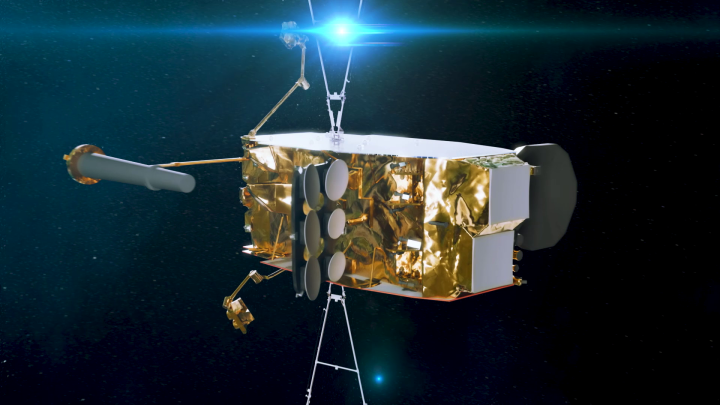Space Economy
ESA seeks to ensure a sustainable growth of the European space sector and the creation of value to society, from basic research to service development.
Space Economy activities at ESA have four priorities:
- Monitor the space sector globally and Europe’s competitiveness
- Establish strategic partnerships, notably with the OECD, Eurostat and the EC JRC, and CERN
- Evaluate the social, economic and environmental impacts of space
- Provide the secretariat of the European Centre for Space Economy and Commerce, ECSECO
News
Save the Date: ECSECO Space Economy Days 2026
Save the Date: ECSECO Space Economy Days 2026 Save the date! On 19 & 20 January 2026, ECSECO members will gather at the ESA Headquarters in Paris (and online) for the highly anticipated Space Economy Days. This members-on...
Read more
ARTES benefits series – Pacis 3, Advancing Secure Government Communications
The European Space Agency’s
Advanced Research in Telecommunications Systems (ARTES) programme helps turn
innovative concepts into commercial reality with its Partnership Projects
focusing on developing new sustainable end-to-end systems, up to i...
Read more
ARTES benefits series – Hybrid Connex, Digital Ambulance of the Future
The European Space Agency’s
Advanced Research in Telecommunications Systems (ARTES) programme helps turn
innovative concepts into commercial reality. Under ARTES Space for 5G/6G, Hybrid
Connex is delivering the UK’s first prototype “digital ...
Read more

Create your account
Click the button below to access restricted area and download the latest Space Economy documents.
Create accountEvaluating the social, economic and environmental impacts of space in support of ESA Council at Ministerial level.
The programmes implemented through the European Space Agency
significantly contribute to Europe’s leadership in science, technology, and innovation.
With some of the most advanced satellites in Earth observation, communications,
and navigation, as well as world-renowned science and exploration missions, ESA
programmes provide crucial solutions for monitoring, early warning systems, and
supporting employment and growth while inspiring and protecting future generations.
In 2025, Ministers from ESA's 22 Member States will decide on the next space
missions that will play a critical role in supporting European nations in overcoming
challenges such as climate change, civil security, sustainable economy, and
sovereignty.
In preparation for this 2025 Ministerial Meeting (CM25), independent socio-economic
impact studies are currently underway. Their objective is to provide robust insights
into the social, economic, and environmental impacts of Europe’s investment in ESA
programmes.
Discover more



